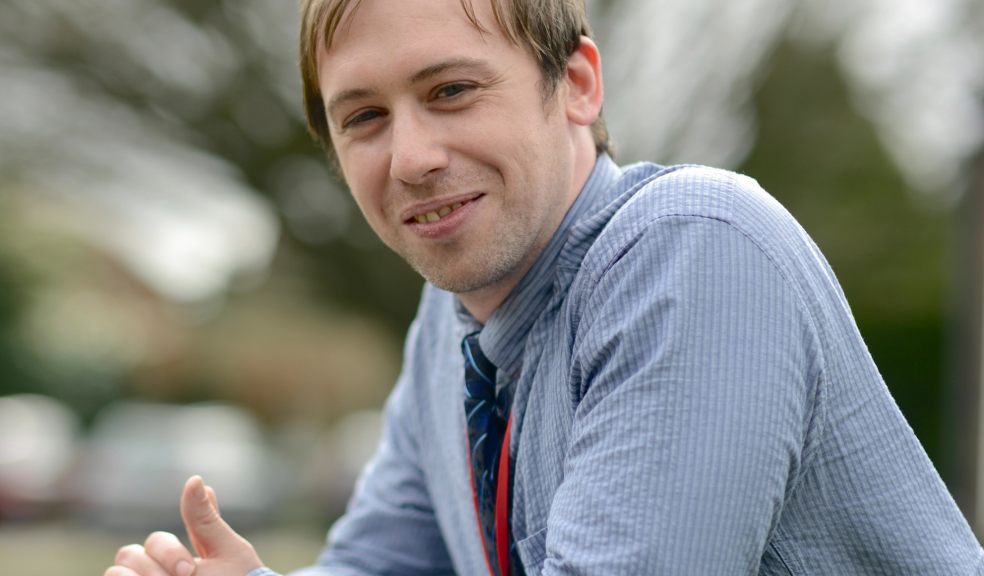
WESC Foundation embarks on groundbreaking visual impairment research
The WESC Foundation - a specialist day and residential centre for young people and adults with visual impairment - is confirming its commitment to excellence and innovation by playing host to an international conference today and tomorrow (23-24 April) at its campus on Topsham Road. Bringing together Visual Impairment experts from around the world, including the United States, the conference is an opportunity to share knowledge and discuss the advances being made in the field of Visual Impairment.
Over the two days, WESC Foundation will welcome hundreds of parents, carers, representatives from local authorities, specialist schools and colleges, professionals in the field and commissioners with the aim of increasing their understanding about neuroscience, as well as keeping up-to-date with developments in the field.
Richard Ellis, who is responsible for admissions and assessment of children wishing to attend the school as well as keeping the WESC Foundation at the forefront of national and international research and development, spoke to The Exeter Daily ahead of the conference.
"It is fantastic to be hosting this conference, which is now in its fourth year, because it puts us on the map in terms of having national and international contacts. However, this is just the start and not an end in itself. The conference is part of an ongoing process of developing strategies - not just for WESC but for wider society too."
During the two-day event, attendees will also learn about an exciting new collaboration between WESC Foundation and Lincoln University. Together they have been awarded a £130,000 grant for a Knowledge Transfer Partnership (KTP) - Europe's leading programme to help organisations work with higher education or research and technology organisations to obtain knowledge, technology or skills which they consider to be of strategic importance.
Richard continues, "WESC will be working with KTP Associate Jonathan Waddington, who will be updating the conference on his work to date, to take the knowledge and expertise around visual neuroscience and finding ways of applying it to the children and young people we work with. Jonathan will be based at the school for the two-year period of the project.
"KTPs have been running for around 30 years and often link scientists with those working in industry and have been instrumental in business research and development. We are unusual in the fact that we are an educational facility but the principal is basically the same. Lincoln University will provide academic supervision and WESC is at the coalface of practical application, with Jonathan acting as the connection between the two."
Over the next two years, the KTP will apply the very latest research in visual neuroscience to develop expertise in childhood cerebral visual impairment at WESC, and to design an effective computer game to improve visual skills of visually impaired children.
"This exciting project will use Jonathan Waddington's knowledge and expertise combined with our user-based experience in visual neuroscience to gain a better understanding of how the brain processes vision in children and young people. The practical outcome will be to produce a game which is accessible to children and young people which can help us assess their vision and give us a good idea of how they are using their vision," says Richard.
"Not only do we hope to assess vision deficits, but in doing so we also hope to understand more about their vision and enable them to learn strategies and skills to help develop and enhance the vision they have got."
Jonathan completed his PhD in Computational Neuroscience at Plymouth University, specialising in the neural control of eye movements during walking or moving through the world.
The conference has again attracted the attention of world renowned visual impairment experts, including Christine Roman-Lantzy, Director of the Paediatric VIEW programme at Western Pennsylvania Hospital, Greg Goodrich, Supervisory Research Psychologist and Optometric Research Fellowship Coordinator from VA Palo Alto Health Care System and Andrew Jacks Lt Col RAMC, Defence Consultant Advisor in Ophthalmology and Adam Ockelford, Professor of Music at the University of Roehampton.
A variety of relevant subjects will be covered, ranging from insights into Dr. Goodrich’s research, which has focused on the treatment of polytrauma veterans with visual loss returning from operations in Iraq and Afghanistan, to Professor Adam Ockleford’s experiences of how children with learning difficulties, including blindness and autism, can develop musically and he will also illustrate a range of practical applications.
When asked about the future, Richard Ellis says "The WESC Foundation hopes to have more research projects in the future. We have a strong and growing conviction that we should have a much more dymanic and growing research department, renowned among the national and international field of visual impairment research and become known for the academic research papers we publish on the subject."
WESC Foundation has recently embarked on a major rebranding project for its 175th year, complete with a fresh, contemporary look, and was chosen as Princesshay's charity of the year. If you would like to know more about how you can get involved with the WESC Foundation visit http://wescfoundation.ac.uk/index.php/get-involved.






















